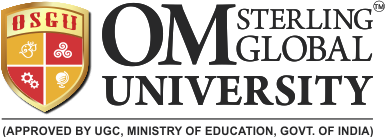Introduction
Medical Lab Technology is a critical field within healthcare, focusing on the analysis and interpretation of clinical specimens to aid in the diagnosis, treatment, and prevention of diseases. The OSGU (Open School of Global University) offers a specialized program in Medical Lab Technology that provides students with the skills and knowledge needed to excel in this essential field. This article explores the details of the Medical Lab Technology course by OSGU, including its curriculum, specialties, career prospects, and more.
Course Overview
Medical Lab Technology is an ever-evolving field that plays a pivotal role in modern medicine. The program offered by OSGU is designed to prepare students for a range of technical and analytical roles in medical laboratories. Here's a detailed look at the course:
The primary goal of the Medical Lab Technology course at OSGU is to equip students with the expertise required to perform and interpret a wide variety of laboratory tests. This includes understanding laboratory procedures, quality control, and maintaining safety standards.
Target Audience
This course is intended for individuals seeking a career in medical laboratory science. It is suitable for both new students and professionals looking to enhance their knowledge and skills in medical lab technology.
Course Duration and Format
The program typically spans several months to a year, depending on the mode of study—full-time or part-time. It combines theoretical learning with practical laboratory experience, including hands-on training in modern lab techniques and technologies.
Key Topics Covered
- Fundamentals of Medical Lab Technology
- Laboratory Safety and Quality Control
- Clinical Chemistry
- Hematology and Blood Banking
- Microbiology and Immunology
- Advanced Diagnostic Techniques
Read more: What Are the Different Types of Medical Imaging Technology?
Specialty AreasThe Medical Lab Technology course at OSGU covers several specialized areas within the field:
Clinical Chemistry
Clinical Chemistry involves the analysis of bodily fluids, such as blood and urine, to diagnose and monitor diseases. Students learn techniques for measuring biochemical markers and interpreting results.
Hematology and Blood Banking
Hematology focuses on the study of blood disorders, while Blood Banking involves the collection, testing, and transfusion of blood. Both areas are critical for managing various medical conditions and emergencies.
Microbiology and Immunology
This specialization covers the identification of microorganisms and the study of immune responses. It includes techniques for detecting pathogens and understanding the body’s defense mechanisms.
Curriculum Breakdown
The curriculum for the Medical Lab Technology course at OSGU is structured to provide a comprehensive education in the field. Here’s a breakdown of the key components:
Theoretical Knowledge
- Introduction to Medical Laboratory Science: Basic principles and concepts.
- Human Anatomy and Physiology: Understanding the body’s systems and functions.
- Principles of Laboratory Instrumentation: Operation and maintenance of lab equipment.
Practical Training
- Laboratory Techniques: Hands-on experience with various diagnostic tests and procedures.
- Quality Assurance: Ensuring accuracy and reliability in laboratory results.
- Case Studies and Simulations: Application of knowledge in real-world scenarios.
Skills Acquired
Graduates of the Medical Lab Technology course will gain:
- Technical Proficiency: Ability to perform and analyze a wide range of laboratory tests.
- Analytical Skills: Expertise in interpreting test results and making informed decisions.
- Attention to Detail: Precision in handling specimens and maintaining accuracy.
- Problem-Solving Abilities: Skills to troubleshoot issues and ensure quality control.
Career Prospects
- Job Roles and Responsibilities Graduates can pursue various roles, including:
- Medical Laboratory Technician: Performing routine and specialized tests.
- Clinical Laboratory Scientist: Analyzing complex specimens and interpreting results.
- Laboratory Manager: Overseeing lab operations and staff.
- Research Scientist: Conducting research to advance medical science.
Employment Opportunities
Medical lab technologists are in high demand across hospitals, diagnostic centers, research labs, and public health organizations. The field offers diverse opportunities for growth and specialization.
Salary Expectations
Salaries vary depending on role, experience, and location. Entry-level positions offer competitive wages, with potential for higher earnings as professionals gain experience and advance in their careers.
Career Advancement
With additional training and experience, professionals can advance to supervisory roles, specialize in specific areas, or pursue further education in related fields.
Personal Stories
Success Stories from Course Graduates
Many graduates of the OSGU Medical Lab Technology program have successfully launched careers in various healthcare settings. Their stories highlight the impact of the program in providing practical skills and real-world experience.
Impact on Healthcare
The course has contributed significantly to improving laboratory services and patient care by producing skilled professionals who enhance diagnostic accuracy and efficiency.
Expert Insights
Interviews with Healthcare Professionals
Healthcare experts emphasize the importance of medical lab technology in modern medicine. They highlight the critical role of lab technologists in diagnosing diseases and supporting patient care.
Quotes from Course Instructors
Instructors from OSGU provide valuable insights into the course's strengths and its impact on students' careers. Their perspectives underscore the program’s relevance and effectiveness in preparing graduates for the field.
Conclusion
The Medical Lab Technology course by OSGU offers a comprehensive education that equips students with the skills necessary for a successful career in medical laboratory science. With a well-rounded curriculum, hands-on training, and a focus on key specialties, the program prepares individuals to meet the demands of the healthcare industry and contribute to improved patient outcomes.
For those interested in pursuing a career in medical lab technology, OSGU’s program represents an excellent opportunity to gain the knowledge and experience needed to excel in this vital field.

